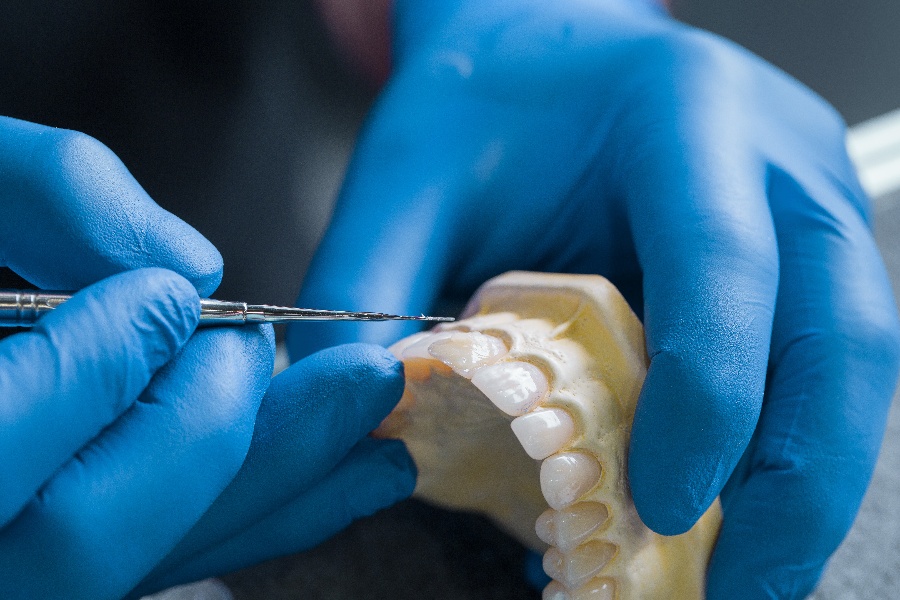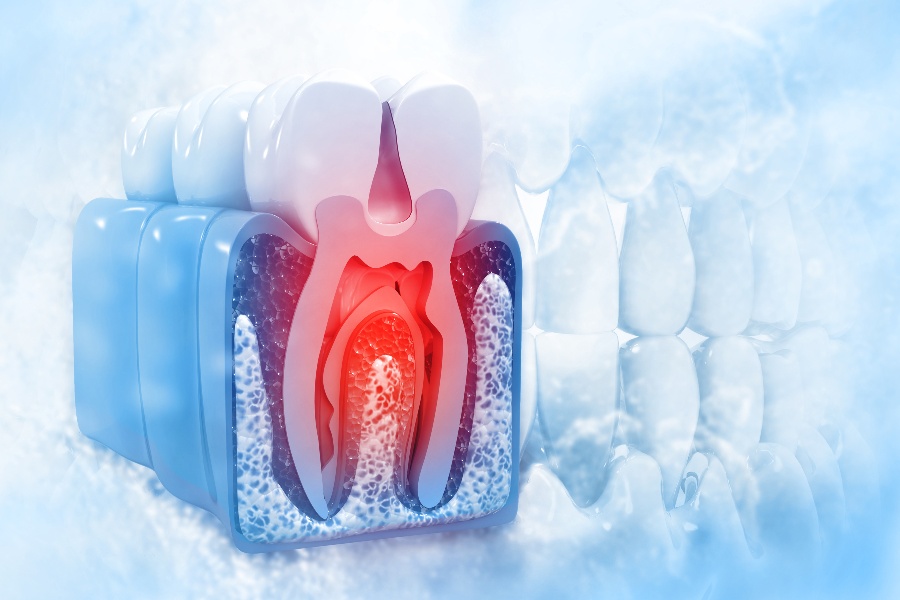Dale Carnegie’s classic book, How To Win Friends and Influence People, states that a smile is “a simple way to make a good impression.”
He devotes an entire chapter to describing and illustrating the importance of a smile. Since Carnegie wrote his book in 1936, much research has confirmed his beliefs about the great value of a winsome smile. Today, many people are taking advantage of cosmetic dental procedures available to enhance their smiles and lives.
Seven Surprising Benefits of Smiling
People often have personal reasons for wanting to improve their smiles. For example, maybe you have an upcoming special event where photographs will be taken. Or you may have an oral presentation and you do not want stained, missing, or crooked teeth to detract from your message. Often, a person wants a smile transformation as part of their desire to always look their best, especially when smiling.
Unfortunately, some people refrain from smiling because of the appearance of their teeth. This causes them to miss the many benefits of smiling more. These benefits include:
- Lowering blood pressure. A smile can convince your brain that you are happy. This has the physiological effect of lowering blood pressure and heart rate. Additionally, this seems to hold true even if you force a smile.
- Relieving pain. It seems hard to believe that smiling can have a powerful brain effect. However, studies show that smiling causes the brain to release chemicals known as endorphins that can help relieve pain.
- Minimizing stress. One study found that even if you have to put chopsticks in your mouth to create a smiling face, you can reap benefits such as minimizing stress.
- Improving immune system function. Another study found that smiling exercises helped nursing students improve their immune system’s response to the stress of nursing school.
- Increasing endurance. Researchers compared runners who smiled during training with those who frowned. The smiling group improved their endurance while the frowners lowered theirs.
- Boosting your mood. According to the American Psychological Association, smiling generates more positive feelings and elevates mood.
- Lengthening your lifespan. The health benefits listed above, combined with others, such as improving marriage and cognitive skills make you a happier person. Researchers also found that a big smile might lead to a longer life.
Hindrances to Your Best Smile
You cannot overestimate the importance of a great smile in your everyday life. Your smile can give you the satisfaction of making another person feel better. When you are happy and smiling, you might even be 13% more productive at work!
However, several dental conditions may hinder you from smiling as often as you would prefer. These conditions include:
- Discolored teeth. Teeth can darken or lose their white appearance for many reasons. Common causes of discoloration include aging, prescribed medications, trauma, some foods such as blueberries, beverages such as coffee, and using tobacco products.
- Chipped teeth. Falling, biting hard food, accidents, and grinding your teeth can cause chipped teeth.
- Missing teeth. Besides the noticeable effect on your smile, missing teeth can also cause changes in the appearance of your face. This is due to the loss of support for facial muscles.
- Crooked teeth. Minor and severe problems in teeth alignment is often a significant factor in how often a person smiles.
- Gaps between teeth. The technical name for a gap between teeth is diastema. Not only can a diastema hinder your smile, but it also increases your risk of food impaction that promotes bacterial growth.
- Defective dental restorations. Old dental crowns and fillings can discolor or chip to hinder your smile. The metal from older silver amalgam fillings can also affect your smile.
- Gum disease. Red, swollen, and bleeding gums caused by gingivitis can detract from an otherwise perfect smile.
Seven Cosmetic Dental Procedures to Transform Your Smile
While you might be excited and anxious to start improving your smile, you may also be overwhelmed. An experienced cosmetic dentist can help you understand the various procedures to give you the smile that you want. Some of the common cosmetic dental procedures include:
- Teeth whitening. Zoom! Teeth Whitening uses custom trays and a professional bleaching solution to give long-lasting whitening results. You also receive the necessary materials for effective at-home whitening maintenance.
- Dental bonding. Dental bonding uses a strong, tooth-colored resin to repair chipped, stained, or misaligned teeth. It can also be used to close minor gaps between teeth. It is a quicker and less expensive option than porcelain veneers and crowns. However, the bonding material lacks the durability and longevity of porcelain.
- Porcelain veneers. Dental veneers are used when only the surfaces of front teeth require treatment. These thin ceramic shells can improve the appearance of chipped, misaligned, or discolored front teeth. The advantages of veneers include providing a natural appearance, needing low maintenance, and requiring minimal tooth reduction.
- Dental crowns. Trauma, cracks, and severe tooth decay can cause significant cosmetic problems. In these cases, it is necessary to replace the entire crown of a tooth. Fortunately, cosmetic dentistry can now take advantage of the superior esthetics of dental porcelain. Porcelain crowns provide a natural appearance that matches the surrounding teeth. Additionally, they are also known for their strength and durability.
- Invisalign. Invisalign clear aligners gently and comfortably move misaligned teeth into more favorable positions. Invisalign can help with several conditions such as overcrowding, overbite, underbite, crossbite, gaps between teeth, and open bite.
- Periodontal therapy. Gingivitis and periodontitis are the two common forms of gum disease that can be treated. Healthy gums, free of inflammation and infection, are essential for the long-term success of cosmetic treatments.
- Root canal treatment. Root canal treatment is not usually thought to be a cosmetic dental procedure. However, this treatment is necessary if you have a discolored front tooth due to trauma.
Cosmetic Dentistry and Oral Health
In addition to an enhanced smile, cosmetic dentistry can improve your oral and general health by:
- Preventing tooth decay and gum disease. Properly aligned teeth without gaps are at less risk of forming cavities.
- Improving the function of your teeth. Your teeth are more likely to function as they should when they look their best. The result is optimal chewing, speaking, and support of facial muscles.
- Promoting oral health. Cosmetic dental procedures make your teeth more accessible for efficient brushing and flossing. Cleaner teeth and gums can also significantly impact the prevention of some severe medical conditions.
Schedule an Appointment
Our oral health professionals can show you the possibilities of cosmetic dentistry to enhance your smile. We spend the time necessary to learn your goals and desires to form a treatment plan to give you the best results. To learn more, contact us online or call us to schedule a cosmetic dental evaluation.






